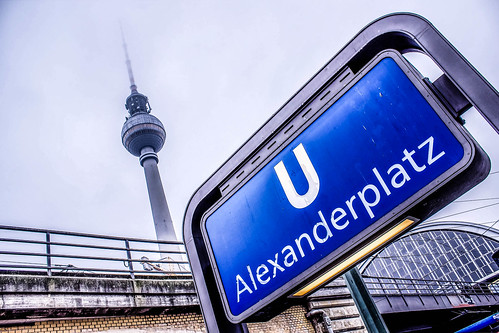
photo credit: Guess where … 324/366 (license)
Germany is a beautiful and diverse country. It is clean and dynamic and life ranges from large industrial cities to some of the most unspoilt and gorgeous countryside in Europe. It is very regional, also, and traveling around you will find great variations not only in the landscape and cityscapes between regions but also the character and attitude of the locals.
As regards teaching English, generally speaking in Germany it is for professionals with experience. It’s not the kind of country where the ability to speak English is enough to get you a job. German students – mostly adult business people – tend to be well motivated, professional, polite, and hard-working and they will expect the same from you.
Although Germany has been experiencing a recession in the past few years and the market has slowed somewhat there are still jobs around although they are not as plentiful as before.
Qualifications to teach English in Germany
The basic qualifications to teach in Germany are a degree and a TEFL Certificate.
The biggest market is perhaps teaching Business English and if you have experience in this field or perhaps prior experience working in business this will go a long way to help find work. A businesslike attitude to your teaching and presentation will also help here.
As Germany is in the European Union you will generally need to be have a passport from an EU country to work here which means that most teachers are British or Irish.
TEFL Pay & Conditions in Germany
As regards schools, one tried and tested method is to be there in person. It’s unlikely you’ll find work from another country without appearing in person (though some German schools will hold interviews in London). This can often lead to doing a demo lesson and then – if suitable – a few hours a week.
Work is available all year round but, like most of Europe, the country slows down in July/August and many schools will close then.
Although there are some major school chains in Germany, often schools will be smaller dealing with local businesses and needs. The result is that you may well find yourself working early in the morning or late at night after businesses have closed for the day. You will often need to visit the businesses and hold lessons on their premises as well.
Pay is reasonable, between [currconvert base_curr=”EUR” base_amount=”10″] and [currconvert base_curr=”EUR” base_amount=”30″] per hour but remember that high taxes and a high cost of living in Germany mean you won’t get rich overnight.
It may take time to build up a good base and a decent income. Sometimes teachers will begin with just a few hours per week and over a period of weeks and months add to this until they have a full timetable and very good income.
Speaking German
If you’re looking for work, knowing German can be a huge benefit. This especially applies if you are working freelance and have to deal with German bureaucracy without the benefit of a school admin to back you up.
In addition, since finding work is often done when you’re in country, this means you’ll have to come over, arrange accommodation and so on and survive so a crash course before heading out will help a lot.



Hello,
I’m a native speaker living in Munich Germany, apart from the TEFL Certificate, a degree is required as basic qualification, what kind of degree?
Degree / Abschluss as in:
-Berufsabschluss
-Mittlere Reife
-Abitur
Looking forward to your response and best regards
HI Derick, I’m afraid I’m not familiar with the German degree ranking but a bachelor’s degree is a four-year degree. So if any of those you listed is a 4 year degree then you should be fine. 🙂